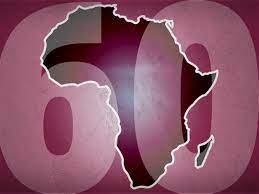Ashok Swain
A violent conflict in Sudan has been ongoing for over a month, and it refuses to end. The country has already witnessed massive infrastructure destruction, the deaths of many civilian populations, and tens of thousands of Sudanese fleeing from their homes.
The two years of war in neighbouring Ethiopia’s Tigray, which saw an end to the hostilities only six months ago, was the deadliest of conflicts of the 21st century, with more than 600,000 civilian deaths. Violent conflicts in Africa are not limited to Ethiopia and Sudan only. Several other countries are currently caught in conflict traps, including South Sudan, Burundi, Cameroon, Chad, the Democratic Republic of Congo, Somalia, the Central African Republic, Burkina Faso, Libya, Mali, Mozambique, Niger, and Nigeria.
As the Uppsala Conflict Data Program (UCDP) points out, Africa is the region that witnesses most state-based and non-state conflicts globally. After some normality returned to Iraq and Syria, Africa has also overtaken the Middle East in the number of civilian deaths. Corruption, poverty, and ethnic and religious divides are often given as reasons why Africa has become the home of so many intractable and violent conflicts. But the high presence of these conflict-causing internal factors in Africa is seen to be due to the presence of external actors and their past and present engagement in the continent. Colonial drawing of the border in Africa has been arbitrary, and it has overlooked the pre-existing sociocultural, ethnoreligious groups in the African countries.
The insecurity among African countries about their national legitimacy makes their leaders see any cross-border interaction or migration as a security threat. Moreover, the colonial-inherited administrative structure has kept the presence of the state limited to a few urban centres, resulting in the state failing to provide basic services to many of its people and forming powerful non-state actors and armed groups. Africa owns vast natural and human resources and, if managed well, can become a continent of peace and prosperity. Instead, it has become the epicentre of conflicts and humanitarian crises. Africa has the world’s almost one-third of mineral reserves. The continent is rich in gold, diamonds, platinum, uranium, cobalt, chromium, and platinum. Africa has 65 per cent of the world’s arable land and 10 per cent of freshwater.
With this huge natural resource, Africa’s predominantly young population can bring a substantial demographic dividend to the region and even the world. But Africa’s extreme poverty rate is six to seven times the world’s average. And its economy is highly dependent on foreign assistance, as the continent receives one-third of the world’s aid. Despite having everything, Africa is suffering from poverty, underdevelopment, and large-scale violence. The African Union (AU) is celebrating its 60th Anniversary this week, as it was established on May 25, 1963 in the Ethiopian capital, Addis Ababa. The AU member states are expected to observe the commemoration of Africa Day under the theme of “Our Africa, Our Future.”
Ten years ago, on the 50th Anniversary, African leaders had solemnly pledged to work towards ending armed conflicts in the continent and not to leave the burden of conflicts to the next generation. Three years after, in 2016, the leaders adopted the Lusaka Road Map with 54 practical steps to end the conflicts by 2020. The deadline passed three years ago; the continent is nowhere near ending its conflicts. Instead, it is witnessing an increasing number of conflicts, which have become more violent. For more than two decades, the AU has had a mandate allowing it to intervene in the internal affairs of member states. But it has been extremely reluctant to do so and has remained absent even from proactively trying to mediate in a few recent violent conflicts. It has also failed to take a principled position on military coups in several countries. The world is happy to endorse the AU slogan “African Solutions for African Problems” as it sees this policy as an escape from committing its military, diplomatic, and economic resources to manage Africa’s conflicts.
Though the slogan sounds legitimate, it is not even a preferred option for all parties to the African conflicts. In some cases, when it has happened, the interventions of African states have also become as controversial, if not more than foreign interventions. Many African troops lack the training and equipment to effectively participate in a peace operation. Moreover, most of the conflicts in Africa have international dimensions; thus, it is not viable to expect these conflicts to be managed by Africans without international assistance. The AU sees itself as Africa’s primary interlocutor of peace and security but lacks a clear mandate, diplomatic heft, and military strength to play that role effectively. Member states, seeking immediate and preferred solutions, align with subregional power or international actors. Thus, to manage the complex conflicts in the continent, the AU must be open to working with subregional and international organisations and powers. In a globalised world, in their pursuit of peace and prosperity, the African Union and its member-states must keep their options for partnership open.







